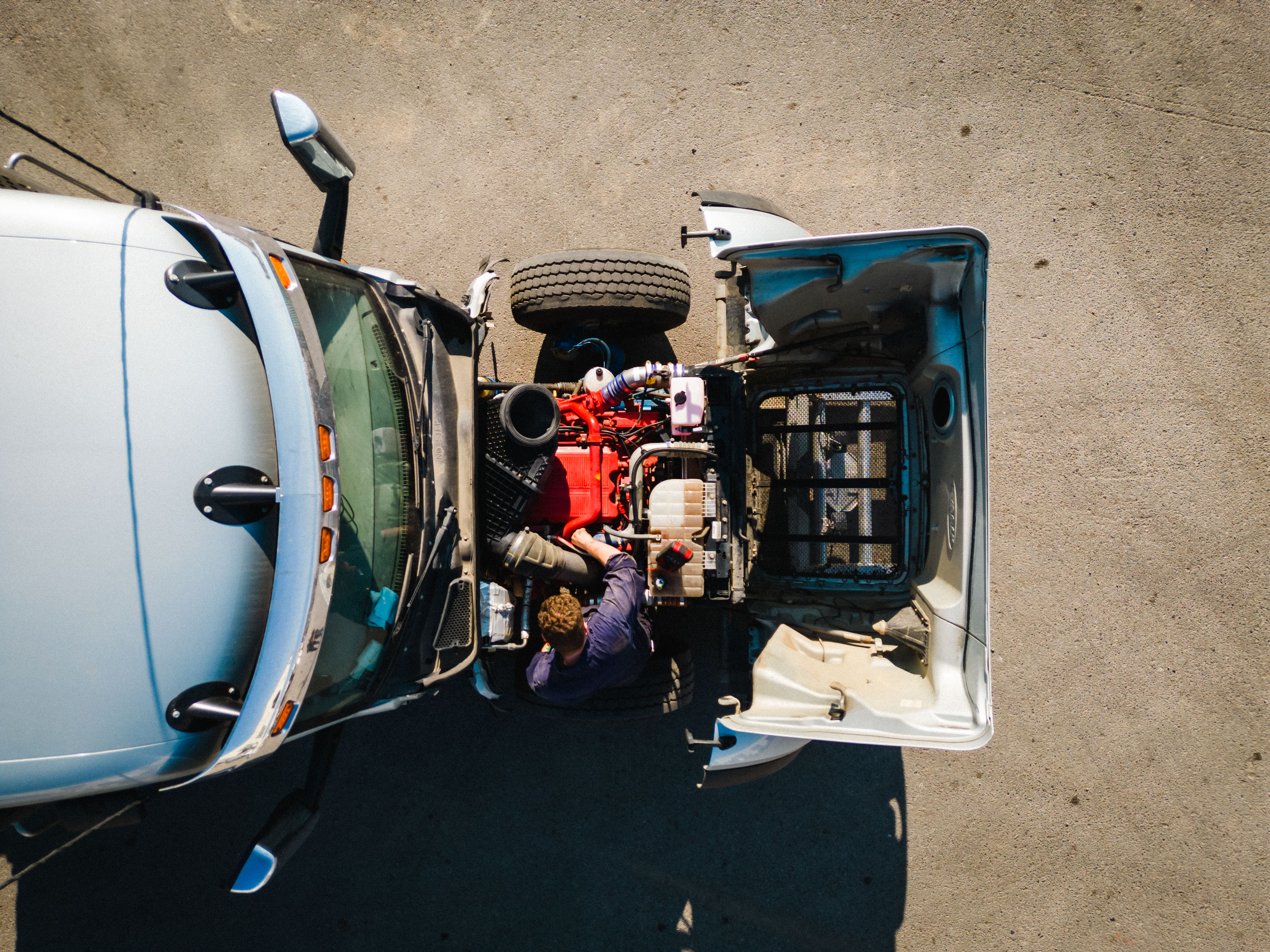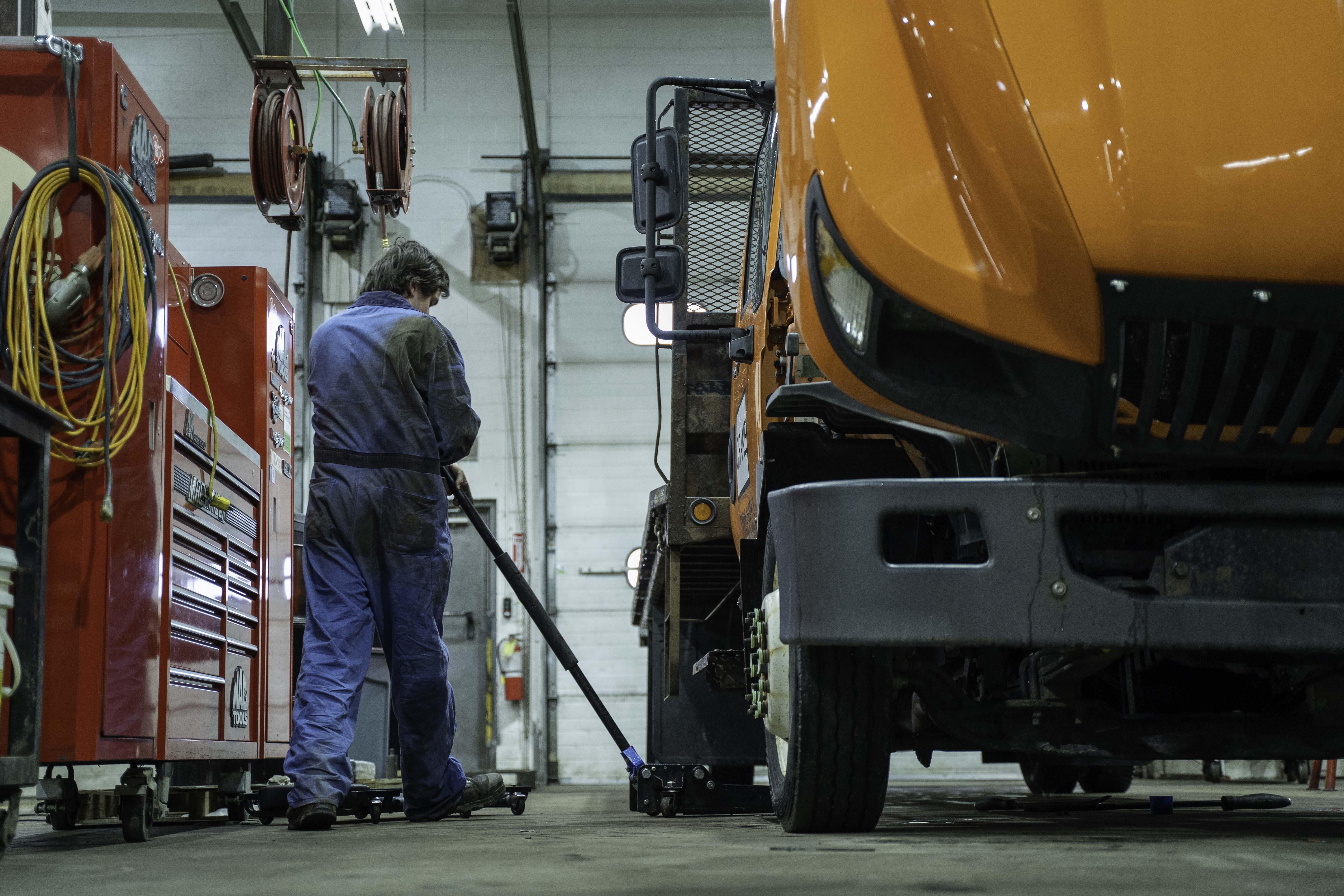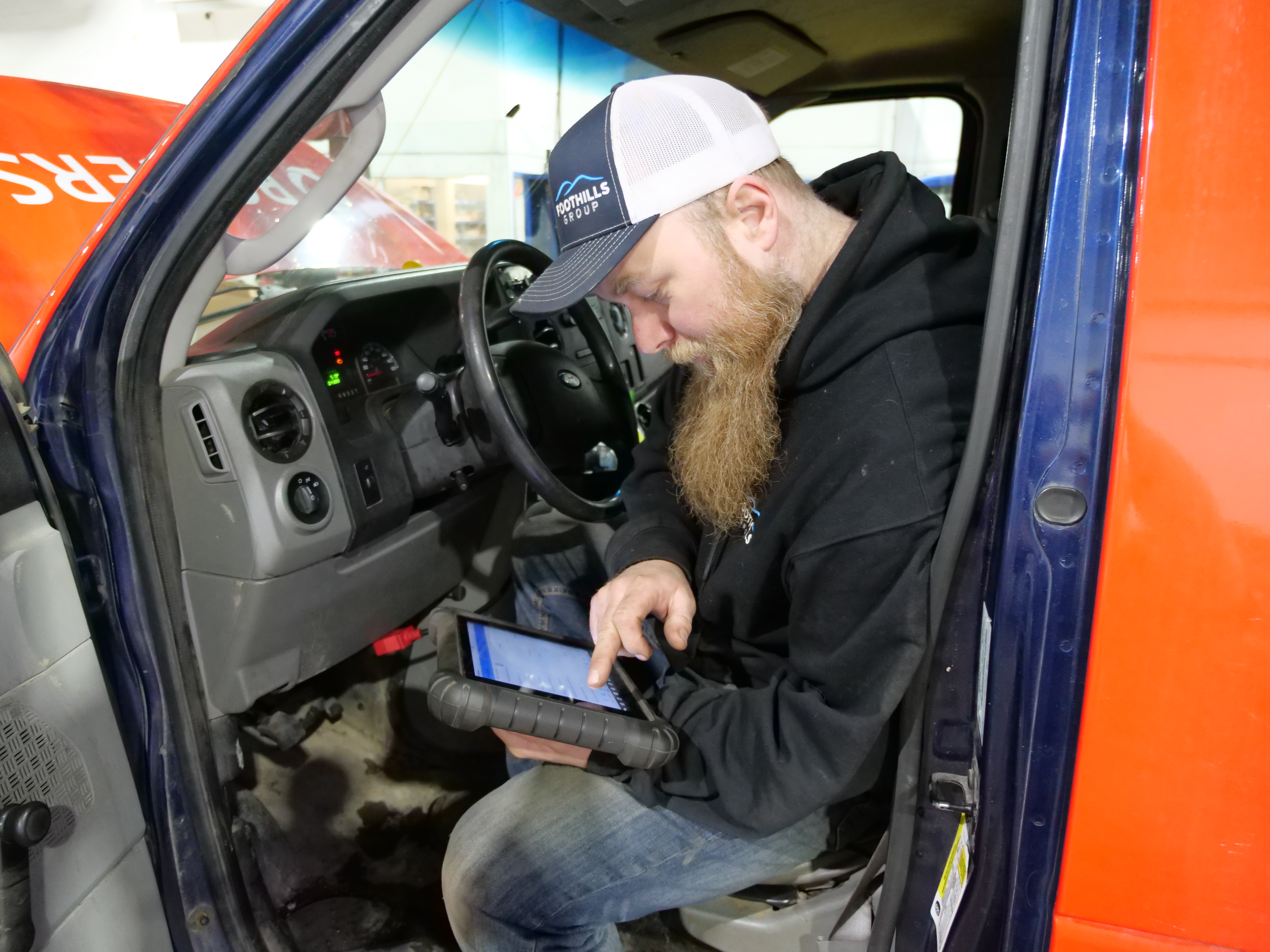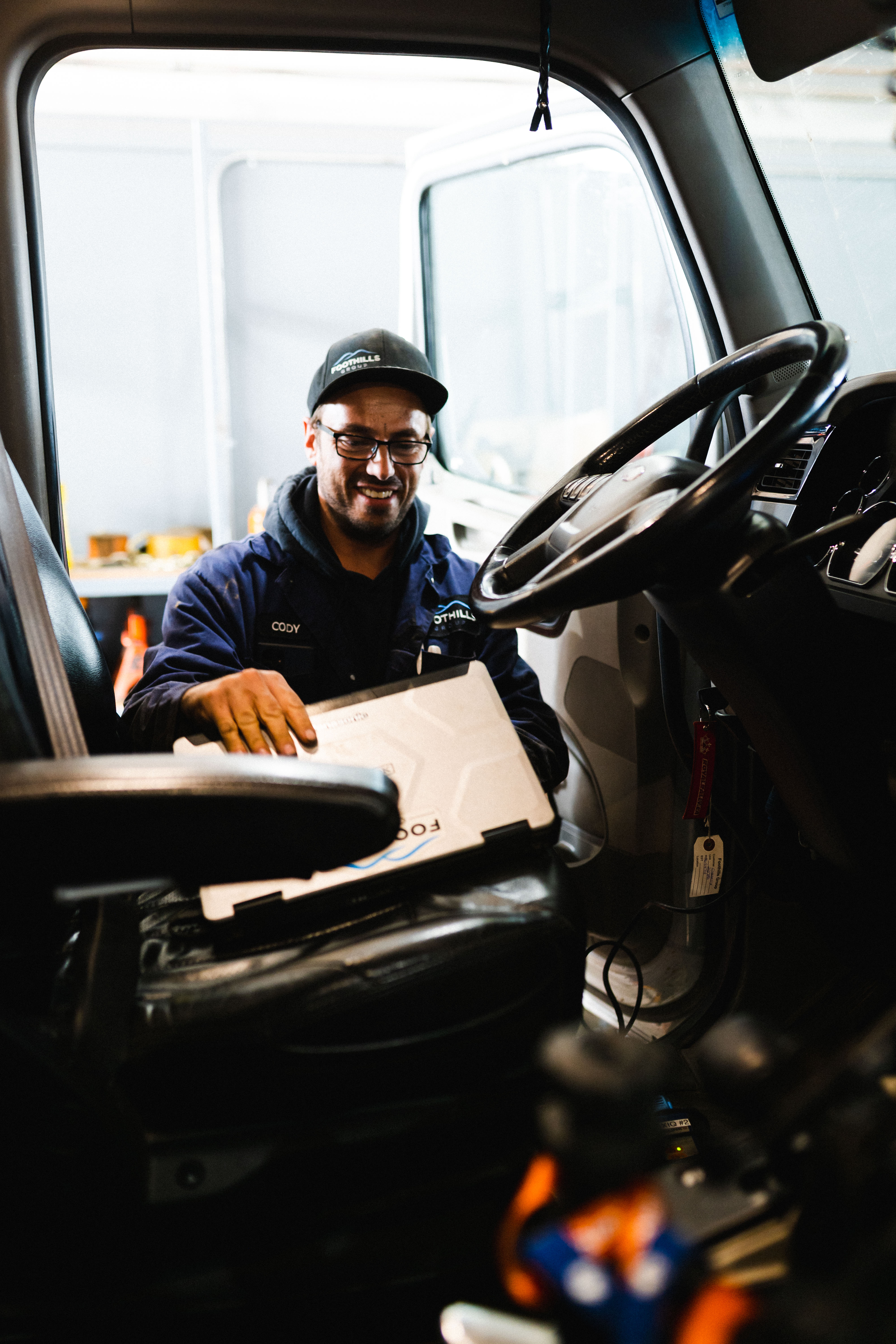The diesel dominance in heavy-duty fleets isn't ending tomorrow - but change is already here. More than175,000 natural gas trucks are on U.S. roads today, and major OEMs like Daimler are testinghydrogen fuel cell semis in real logistics runs. Fleets are adoptingcompressed natural gas (CNG), liquefied natural gas (LNG), propane, and hydrogen to cut fuel costs and meet stricter emissions standards.
For independent and mid-sized shops, this shift is both a challenge and an opportunity. Servicing alt-fuel trucks isn't the same as diesel. It requiresnew training, safety upgrades, and operational discipline - but it also unlocks high-value work in a space where few competitors are prepared.
This guide breaks down the key trends, maintenance differences, safety considerations, and business opportunities around alternate fuels - and shows howShopView helps shops manage the added complexity profitably.
Why Alternate Fuels Are Taking Off
Two main drivers are pushing fleets toward alt-fuel trucks:
- Cost savings: Natural gas often costs less per BTU than diesel and offers more stable pricing. Hydrogen is still early, but incentives and scale are improving economics.
- Emissions compliance: Regulations at federal and state levels are tightening. Fleets need cleaner options to comply with low-NOx and zero-emission rules.
Examples from the field:
- Refuse fleets: Over17,000 natural gas garbage trucks operate in the U.S. - a huge share of new orders in that sector.
- Engine OEMs: Cummins' new15L CNG engine (X15N) delivers up to 500 HP, bringing natural gas into Class-8 line-haul territory.
- Hydrogen pilots: Daimler's GenH2 trucks logged225,000 km in real-world trials, proving the tech works for freight.
Add to this expanding fueling infrastructure (700+ CNG stations in the U.S., dozens of hydrogen stations in California/Europe), plus government incentives, and it's clear: alternate fuels are not hype - they're the future rolling into your bays.
How CNG & Hydrogen Trucks Differ from Diesel
From a distance, a CNG Kenworth or hydrogen Freightliner looks like any other truck. Underneath, key systems change the service game.
CNG/LNG Trucks
- Engines: Spark-ignited, not compression-ignited → requirespark plugs and coils, with plug replacement around every 60-70k miles.
- Exhaust: Use athree-way catalyst (like passenger cars) instead of diesel aftertreatment (no DPF regens, no DEF).
- Fuel systems: High-pressure tanks (3,600-4,500 psi for CNG) and lines.Tank inspections required every 3 years/36k miles or after any accident/fire.
- Maintenance shifts: Cleaner oil, fewer fluids, but new PM items - plugs, more frequent air filter changes, coalescing fuel filters, and valve adjustments.
Hydrogen Fuel Cell Trucks
- Drivetrain: Fuel cell stack generates electricity to power electric motors. No combustion engine, no oil changes, no DPF/DEF.
- Fuel storage: Hydrogen tanks atup to 10,000 psi with limited lifespan (15-20 years). Requires strict leak detection and inspections.
- Unique hazards: Hydrogen is odorless, invisible when burning, and leaks easily. SpecializedH2 sensors and strict handling protocols are mandatory.
- Maintenance: Coolant checks, air filters, stack diagnostics - closer to EV service with new components to learn.
Bottom line: Maintenance tasks don't disappear - they change. Shops that prepare will turn these changes into billable services.
Safety & Facility Upgrades: Non-Negotiable
Pulling a CNG or H2 truck into a diesel-only bay is a recipe for disaster. These fuels require facility upgrades to meetNFPA and International Fire Code standards.
Key requirements include:
- Ventilation & gas detection: Methane and hydrogen rise to the ceiling. Shops needdetectors that trigger fans at 25% of the lower flammable limit. Emergency ventilation switches and alarm systems are essential.
- Explosion-proof fixtures: Standard lights, door motors, or heaters can't risk sparking. Replace withClass 1 Division 2-rated equipment.
- No open flames: Infrared heaters, furnaces, and cordless tools often need replacing or relocating. Many shops switch to pneumatic tools in CNG/H2 bays.
- Conditioned bays: Many shops retrofitone or two bays first with ventilation, detection, and safety systems - scaling as demand grows.
Upgrades cost money, but the alternative is worse: fines, shutdowns, or catastrophic incidents. Done right, they also become a marketing asset: "Certified CNG/Hydrogen Ready."
Training & Certification: Skilling Up Your Team
Your best diesel tech can't just "figure it out" on a 10,000-psi hydrogen tank. Training and certification are essential.
CNG Training
- CSA CNG Fuel System Inspector certification - required for tank inspections every 3 years.
- ASE F1 CNG Vehicle exam - validates tech knowledge.
- OEM courses (Cummins offers CNG-specific training).
Hydrogen Training
- AFVi Hydrogen Vehicle Safety orNAFTC courses - cover H2 hazards, defueling, leak response.
- EV/power electronics training - relevant for fuel-cell trucks with high-voltage systems.
Whole-staff orientation: Service writers, advisors, and managers should know intake SOPs, safety signals, and scheduling limitations.
Certification isn't just a safety play - it's amarketing edge. Fleets often require certified shops for CNG/H2 service contracts.
New Revenue Streams for Early Adopters
Preparing for alt-fuels isn't charity - it's a business move.
- Tank inspections: Every CNG cylinder must be inspected every 3 years. That's billable work.
- PM services: Spark plug changes, fuel filter swaps, hydrogen leak tests - all recurring revenue.
- Contract opportunities: Municipal fleets, waste haulers, logistics pilots - many willoutsource alt-fuel service to trained independents.
- Premium pricing: With few competitors, shops can command higher labor rates.
- Adjacent markets: Beyond trucks, think hydrogen buses, CNG equipment, and even fueling station service.
Being one of the first shops in your region with alt-fuel capability positions you asthe go-to expert - before competitors catch up.
Managing Complexity with ShopView
Adding alt-fuel service means more tasks, compliance, and risk. Paper systems or generic auto software won't cut it. Here's whereShopView, purpose-built for heavy-duty shops, makes all the difference:
- Compliance automation: Auto-schedule CNG tank inspections, attach DOT/DVIR forms, and keep all records digital for audits.
- Telematics integration: Fault codes (misfires, pressure warnings, stack diagnostics) flow straight into repair orders. Predictive maintenance reduces breakdowns by up to70%.
- Inventory control: Track specialized parts - spark plugs, regulators, sensors - so you never run out mid-job.
- Scheduling logic: Ensure CNG/H2 trucks are only assigned to certified techs and ventilated bays.
- Customer transparency: Provide fleets with digital inspection records, photos, and histories - building trust and loyalty.
- ROI fast-track: Shops using ShopView typically recover$100K+ in missed work and save1.5 admin hours per tech per day, often seeing20-30% revenue growth within 90 days.
In short: software is your backbone for making alt-fuel service safe, efficient, and profitable.
Conclusion: Gear Up Now, Profit Later
CNG and hydrogen trucks aren't science projects anymore - they're pulling into fleets today. Shops that invest intraining, safety, and digital systems now will win tomorrow's contracts and build long-term credibility.
The path forward is clear:
- Audit your facility for ventilation and detection upgrades.
- Certify your techs in CNG and hydrogen service.
- Adopt ShopView to simplify compliance, scheduling, and telematics integration.
- Market your capabilities to fleets adopting alt-fuel.
Early adopters will become theregional leaders in alt-fuel service. Latecomers risk watching that work - and revenue - go elsewhere.
Ready to future-proof your shop?Book a free demo of ShopView and see how our heavy-duty SaaS platform makes alt-fuel service safer, more efficient, and more profitable.
Ready to transform your shop?
We've been in the heavy-duty truck repair business for 20+ years, so we know what slows shops down. That's why we built ShopView—to eliminate the bottlenecks.



